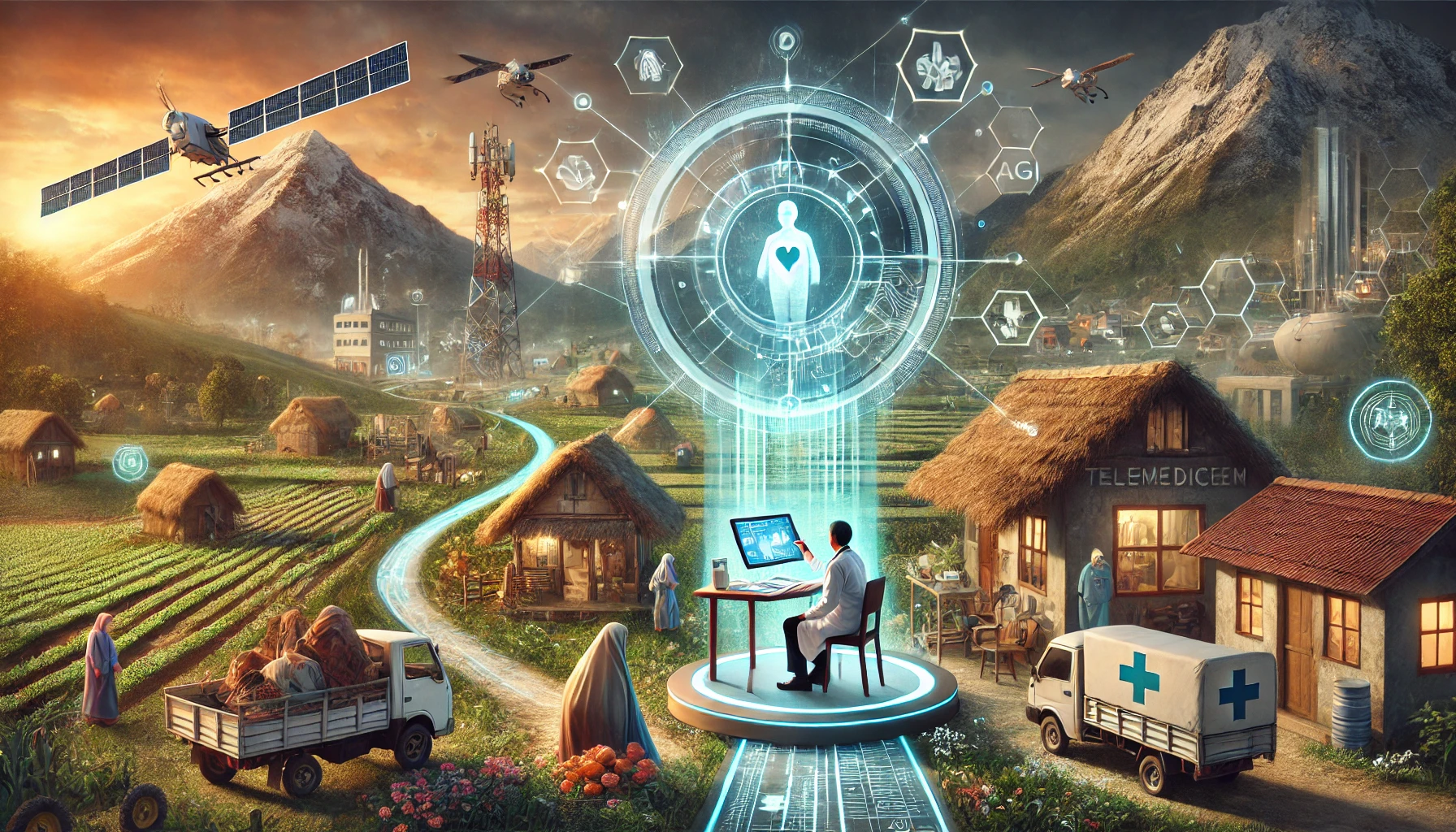Access to quality healthcare remains a pressing challenge in rural and underserved regions globally. Telemedicine has emerged as a powerful tool to bridge this gap, yet logistical hurdles and resource limitations persist. The advent of Artificial General Intelligence (AGI) offers unprecedented opportunities to transform telemedicine, particularly for rural populations.
Understanding AGI’s Potential in Telemedicine
Unlike traditional AI, AGI is designed to perform any intellectual task that a human can, making it adaptable to a wide range of complex scenarios. This flexibility is crucial in addressing the multifaceted challenges of rural healthcare, such as limited infrastructure, cultural diversity, and resource constraints.
Key Ways AGI Can Enhance Telemedicine Access
- Language and Cultural Adaptation
AGI systems can process and translate multiple languages and dialects in real-time, making telemedicine accessible to non-native speakers. They can also integrate cultural nuances into consultations, ensuring patients feel understood and respected. - Personalized Healthcare
AGI can analyze patient histories, symptoms, and environmental factors to provide tailored treatment plans. For instance, it can recommend therapies based on local drug availability or specific regional health risks. - Enhanced Diagnostics
By leveraging advanced algorithms, AGI can analyze diagnostic tests, images, and symptoms with unparalleled accuracy. This capability is particularly beneficial for areas lacking specialists, such as radiologists or dermatologists. - Efficient Resource Allocation
AGI can optimize the deployment of medical resources, such as mobile clinics or medication supplies, by predicting disease outbreaks and prioritizing high-risk areas. - Continuous Learning and Feedback
Unlike static AI models, AGI can learn from interactions, adapting to new medical discoveries or changes in local healthcare needs, ensuring up-to-date and relevant care.
Overcoming Barriers to Implementation
While AGI holds immense promise, challenges such as infrastructure limitations, data privacy concerns, and the digital divide must be addressed. Partnerships between governments, tech companies, and healthcare providers are essential to create scalable solutions.
A Step Towards Health Equity
Integrating AGI into telemedicine can dramatically improve healthcare accessibility, reduce mortality rates, and empower rural communities. By leveraging AGI, we can pave the way for a more equitable healthcare system where no one is left behind.
Using AGI to Accelerate Cancer Research in the Philippines
Cancer remains a leading cause of mortality in the Philippines, with many cases diagnosed at advanced stages due to limited access to early detection and specialized treatment. Artificial General Intelligence (AGI) presents a transformative opportunity to revolutionize cancer research and care, addressing these challenges head-on.
The State of Cancer Research in the Philippines
The Philippines faces unique barriers in cancer research, including limited funding, fragmented healthcare systems, and a lack of advanced diagnostic tools. These hurdles impede the early detection, prevention, and treatment of cancer. AGI has the potential to bridge these gaps by enhancing research capabilities and streamlining medical practices.
How AGI Can Transform Cancer Research
- Data-Driven Insights
AGI can process vast amounts of clinical data from hospitals, research centers, and public health databases to identify patterns, risk factors, and treatment outcomes. This capability accelerates the discovery of correlations and trends that may lead to breakthroughs. - Predictive Modeling for Early Detection
Using machine learning, AGI can develop predictive models to identify high-risk populations and recommend targeted screening programs. These models can factor in genetic, environmental, and lifestyle data, significantly improving early detection rates. - Accelerating Drug Discovery
AGI’s ability to simulate biological processes and predict drug efficacy can reduce the time and cost of developing new cancer therapies. By identifying promising compounds faster, AGI can facilitate the introduction of affordable and effective treatments in the Philippines. - Personalized Medicine
AGI can analyze individual patient data to recommend customized treatment plans, improving outcomes and reducing side effects. This approach aligns with the growing global shift toward precision medicine. - Resource Optimization
AGI can optimize the allocation of limited resources by identifying underserved areas and recommending strategies to improve healthcare delivery, such as deploying mobile cancer screening units.
Building a Collaborative Ecosystem
To maximize the impact of AGI, collaboration among stakeholders is essential. Partnerships between government agencies, academic institutions, and private companies can create an ecosystem where AGI-driven cancer research thrives.
Empowering the Fight Against Cancer
By integrating AGI into cancer research and treatment strategies, the Philippines can overcome current limitations and offer hope to millions of patients. This cutting-edge technology has the potential to not only save lives but also position the country as a leader in global cancer research innovation.
These initiatives exemplify how AGI can be a catalyst for positive change in healthcare, driving advancements that can save lives and improve quality of life in underserved regions.
[SEO optimized]


